25 years of Mohammed VI: the southern provinces and Africa at the heart of the Royal Vision
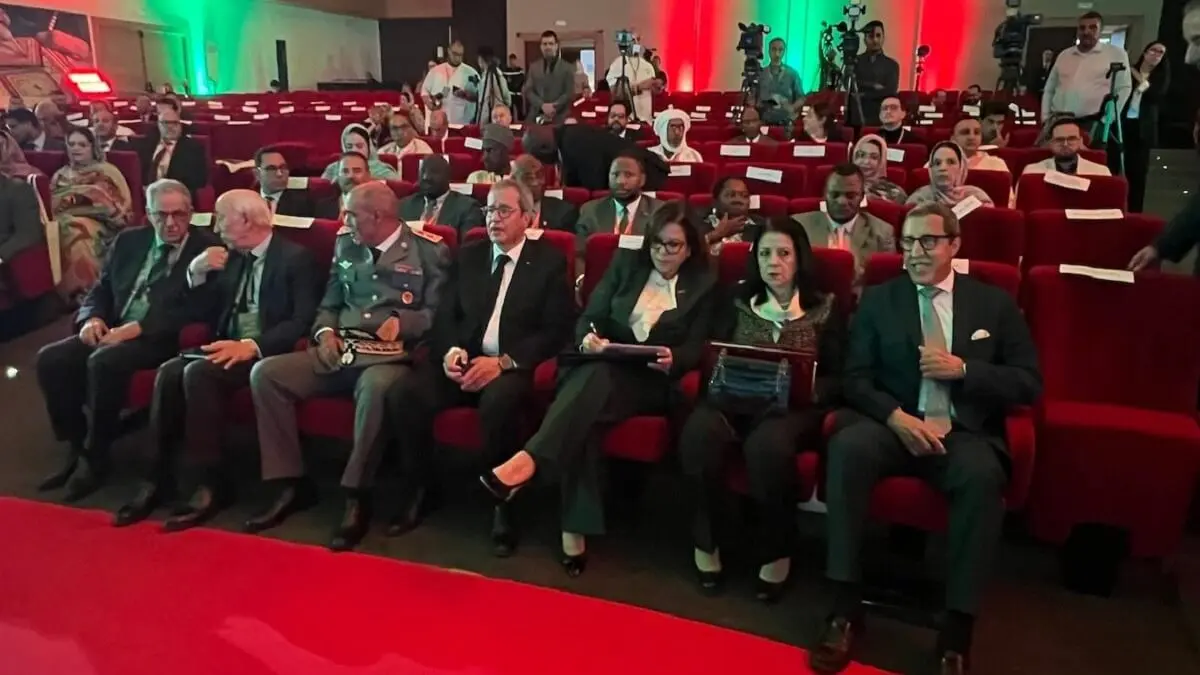
- The southern provinces and Africa at the heart of the royal vision
- Morocco is the bearer of the dream of “Africa as an actor of its own destiny”
- Vision, audacity and key action for sustainable development in the southern provinces
- 25 years of Reign proactive in crises and ambitious in development projects
The 4th edition of the MD Sahara Forum, hosted by journalist Aziz Boucetta, reaffirms, from Dakhla, the irreversible will to move forward in the implementation of the royal vision that has marked a quarter century of achievements and progress through major multidimensional projects.
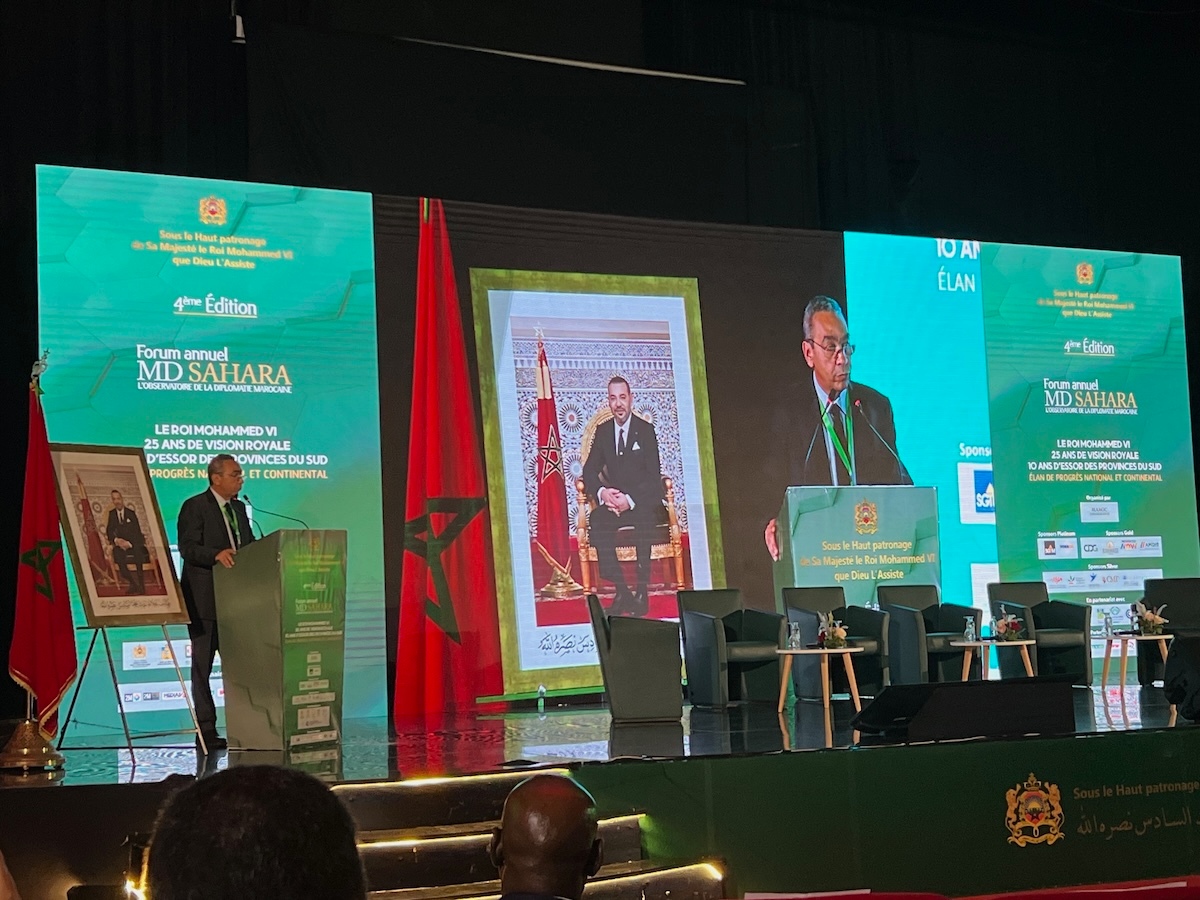
“It is the will of a King who wants his country to be part of the nations that watch over progress, democracy and freedom; betting on a real economic and social revolution that preserves the authenticity of Morocco in the face of the various horizons and the different challenges it faces,” said Hassan Alaoui, publishing director co-founder of Maroc Diplomatique with a special emphasis on the awakening of a country in continuous development throughout the 25 years of reign founded on rigor, hope and the philosophy of proximity.
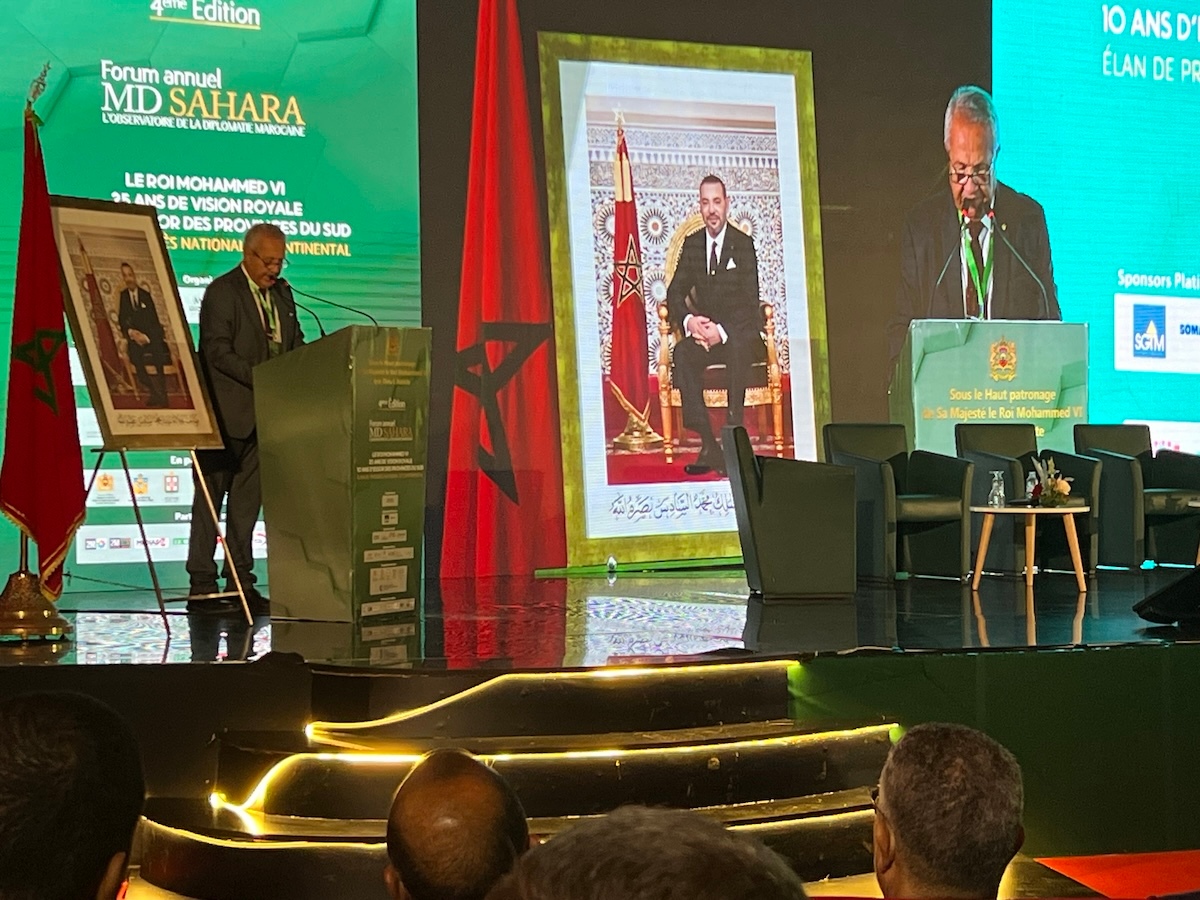
The southern provinces and Africa at the heart of the royal vision
Zakia Driouch, Secretary of State at the Ministry of Agriculture Rural Development, Water, Forests, in charge of maritime fisheries, stressed that “the strategy of Mohammed VI in the southern provinces is characterized by an integrated and multisectoral approach; so that, in 2015, the provinces have benefited from a program of economic and social development called New Development Model of the southern provinces”.
The real vision urges to pay attention to the development of the southern provinces as an inseparable part of the national cause; betting on advanced regionalization to defend the autonomy plan of the Sahara under the sovereignty of Morocco. Investing in infrastructures such as the Atlantic port of Dakhla (2028) which will give full access to Africa as well as open a window to America is a firm step towards the economic development of the area and its opening to the world.
“This concern is part of the roadmap of the secretariat of State in charge of fisheries; Morocco being a regional halieutic power, a key fishing sector in the national economy of the country in terms of wealth creation and industrialization, with a halieutic production 1.42 M tons in 2023 (15MMDH) and a generalization the compulsory medical coverage of all fishermen,” added the secretary of State.
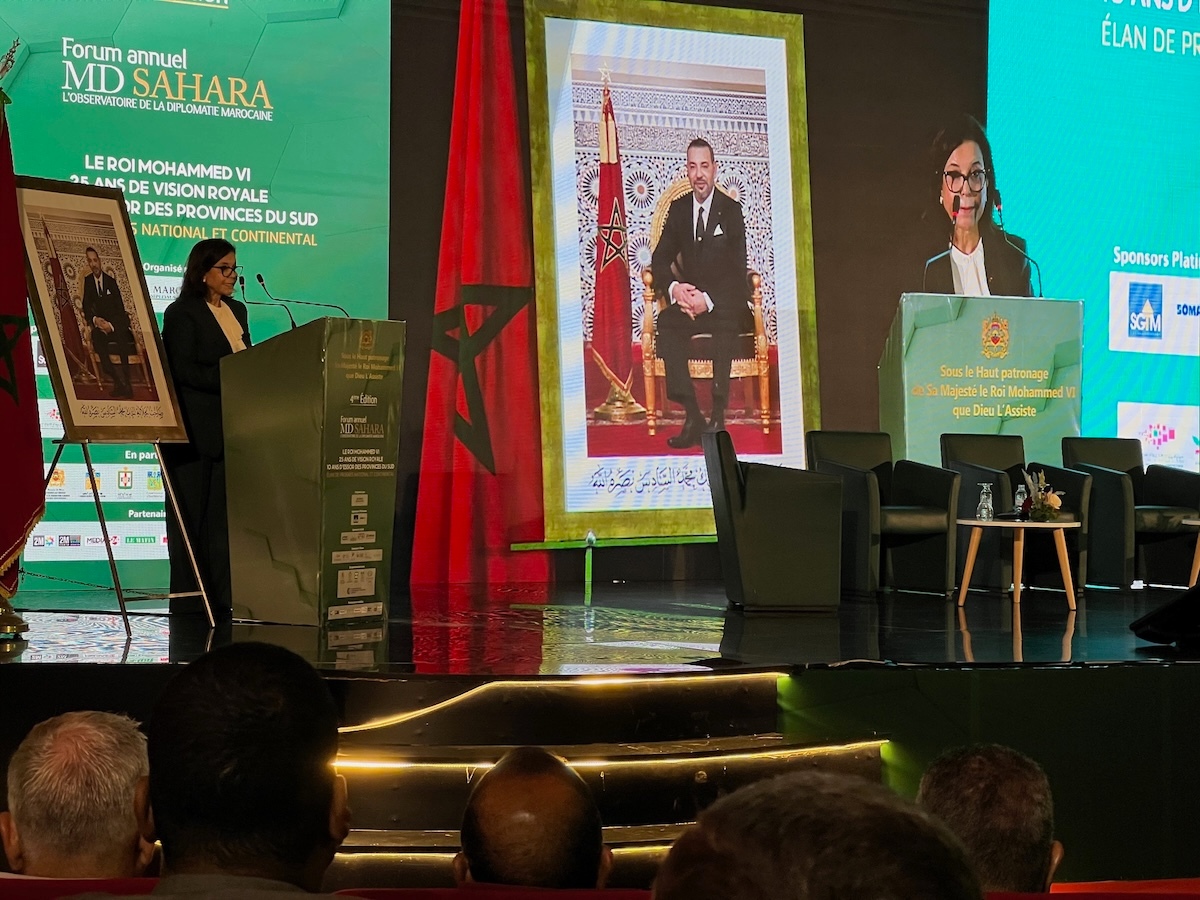
In accordance with the real strategy to sustain and support a sustainable and inclusive development in Africa and perpetuate the values of solidarity between African countries, several agreements link Morocco with more than 19 African countries allowing the organization of trainings, the exchange of experiences between the Kingdom of Alaoui and the rest of the African continent”, highlighted Driouch affirming ‘We have realized five marketing shipping infrastructures in favor of artisanal fisheries in four African countries: Senegal, Ivory Coast, Guinea and Congo’.
Zakia Driouch also underlined the unfailing commitment of the ministry in favor of the continuous development of both the southern provinces and Africa, aware of the fact that the success of sustainable development requires new forms of solidarity and cooperation and innovative economic alliances of all stakeholders.
Morocco is the bearer of the dream of “Africa as an actor of its own destiny”
For his part, Souad Mekkaoui, co-founding CEO of MD, said that the MD Sahara Forum honors the real vision that has given Morocco a new soul and a strong bold impetus that had profoundly transformed the Moroccan reality; allowing it to position itself as a model country at regional and international level.
“Given its cultural radiation, its political stability and its capacity of influence, Morocco enjoys a solid positioning tracing a promising trajectory that is not limited to a national development but immersed in a regional and international dynamics. Thanks to its strategic geographical position, the southern provinces embody this ambition as a meeting point between North and South, a bridge between Europe and Africa that carries the dream of a continent proud of its capabilities and an actor of its own destiny,” Mekkaoui stressed.
“The 25 years of reign and 10 years of development and profound transformations of the southern provinces represent the main theme of the forum as a testimony of a real ambition to build a Morocco open to a promising future on this land of challenges and promises inscribed in the heart of global transformations," he added; clarifying that the new era of Mohammed VI has insisted on innovating, building and making Morocco a key player in a world in perpetual mutation.
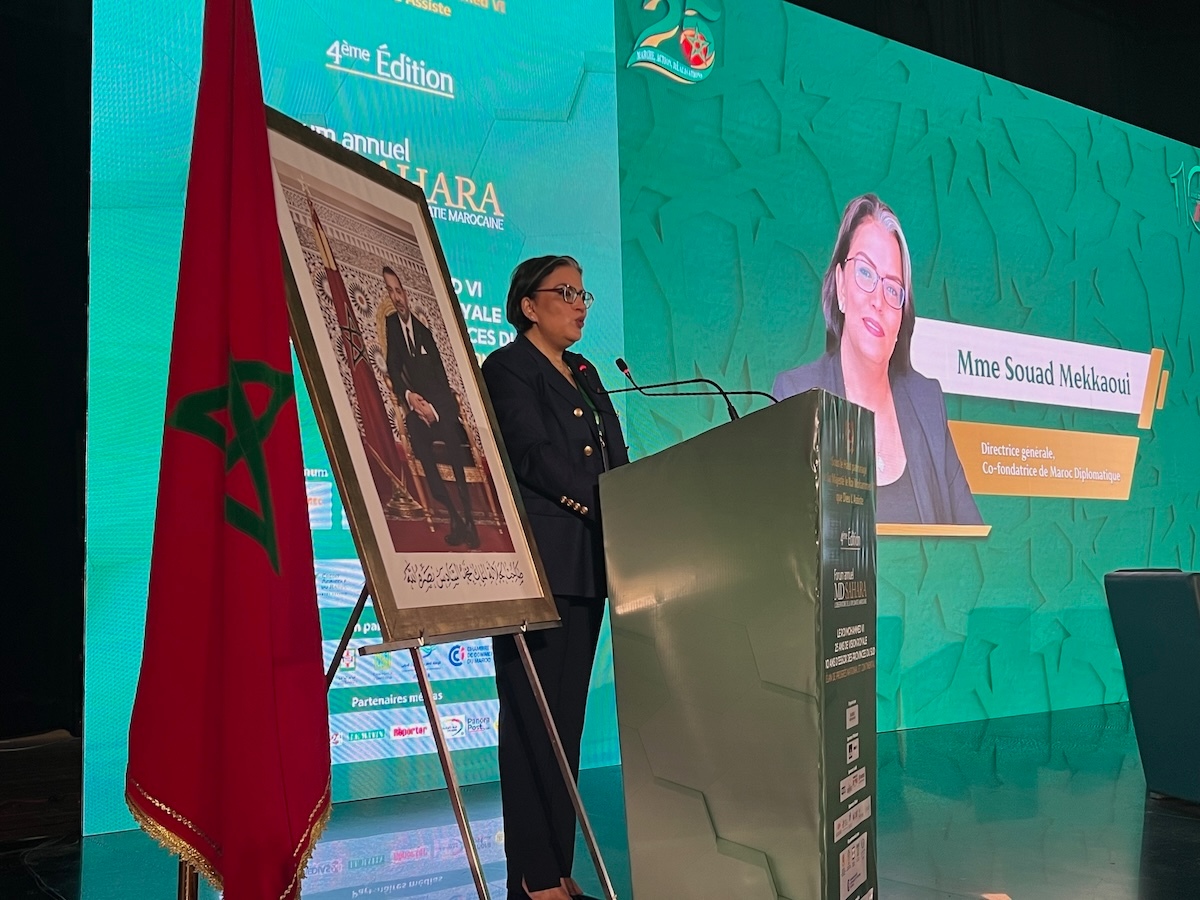
The goal is to become a model of development by charting an ambitious and inclusive path based on the solid pillars of Moroccan dignity, territorial integrity and recognized continental and international presence. This vision, which resulted in the New Development Model for the southern provinces 10 years ago, refuses to see this area as peripheral and considers it as a center and strategic lever for Morocco and Africa thanks to the potential of this space that allows Morocco to distinguish itself as a continental leader.
At the international level, Morocco has consolidated, as Mekkaoui explained, an unprecedented diplomatic triangle, thanks to the proactive diplomacy and strategic vision of King Mohammed VI that makes the Kingdom an indispensable actor in international relations, consisting of:
- Morocco's return to the African Union
- The growing support for its sovereignty over the Sahara.
- Its role as a respected mediator during regional and international crises.
Vision, audacity and key action for sustainable development in the southern provinces
The co-founder of Maroc Diplomatique highlighted that Morocco has shown that boldness, vision and coordinated action are the keys to inclusive sustainable development throughout the country, including the southern provinces as territories of hope.
“Thanks to colossal projects such as the Atlantic port of Dakhla, we are not talking about geographical borders but about connections between countries and continents in order to redesign trade routes, economic partnerships with an Africa that rises to write its own destiny,” stressed Mekkaoui stressing that the wisdom of King Mohammed VI Morocco has strengthened its international partnerships especially with the African continent to become a key player in peace, security, migration and sustainable development.
In this regard, education and training constitute the efficient weapons to achieve the objectives of sustainabilitybased on Africa as a horizon and youth as a driver of development and climate as a major responsibility in the face of the immense challenges of climate change and social inequalities.
“MD Sahara is committed to defend the territorial integrity of Morocco, promote the national cause and federate influential actors in different countries in order to contribute to develop Moroccan diplomacy to build bridges between Morocco and the rest of the world,” concluded Souad Mekkaoui
25 years of Reign proactive in crises and ambitious in development projects
Amal El Fallah Seghrouchi, minister delegate of the government in charge of Digital Transition and Administration Reform, pointed out that “in 25 years, King Mohammed VI has been able to transform Morocco into an ambitious modern nation through major changes at the economic, social, cultural and diplomatic levels that put the Moroccan citizen at the center of priorities of the royal vision that advocates sustainable development and prosperity throughout the national territory including the southern provinces.
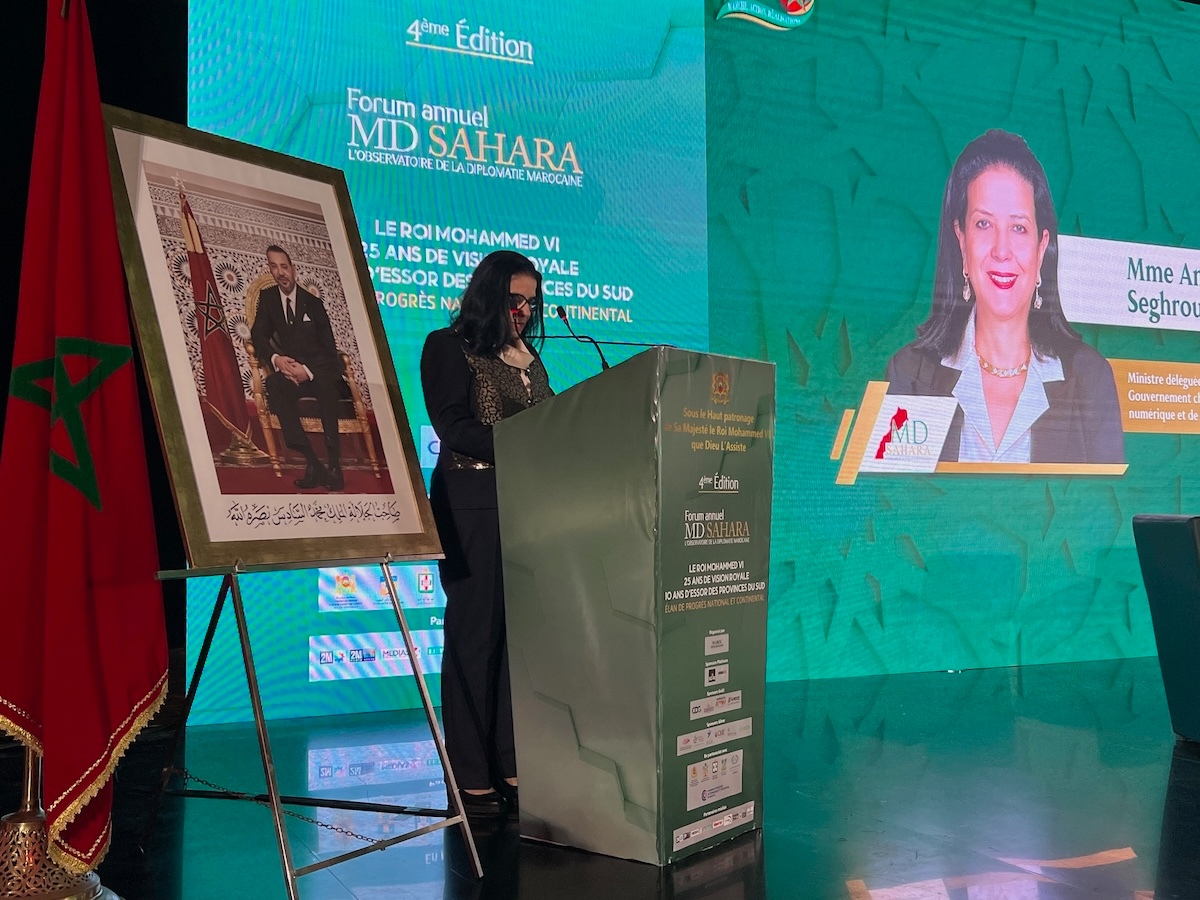
Seghrouchi highlighted the economic impact of the reign of Mohammed VI translated into lighthouse projects such as the Tangier Med port among other modern infrastructures such as the high-speed line that has revolutionized mobility in Morocco. The Royal ambition has transformed the southern provinces; turning the region into an engine of growth not only for the Kingdom but for the entire African continent.
With the Atlantic port of Dakhla and the Tiznit Dakhla expressway, among other projects launched in the southern provinces in the fields of renewable energy, fisheries and digitization, the royal vision aims to provide these provinces, like the rest of Morocco's regions, with the services essential to their economic development.
The Minister in charge of Digital Transition explained how the digital sector reflects a strategic lever for the modernization of the country through the implementation of the Morocco 2030 national digital strategy and the reform of the administration in order to improve the quality of services, strengthen transparency, optimize governance and stimulate social inclusion, promote international cooperation and make Morocco an African leader in this domain.

The Moroccan Ambassador to the United Nations, Omar Hilale, spoke on the 25 years of the foreign policy promoted by King Mohammed VI.
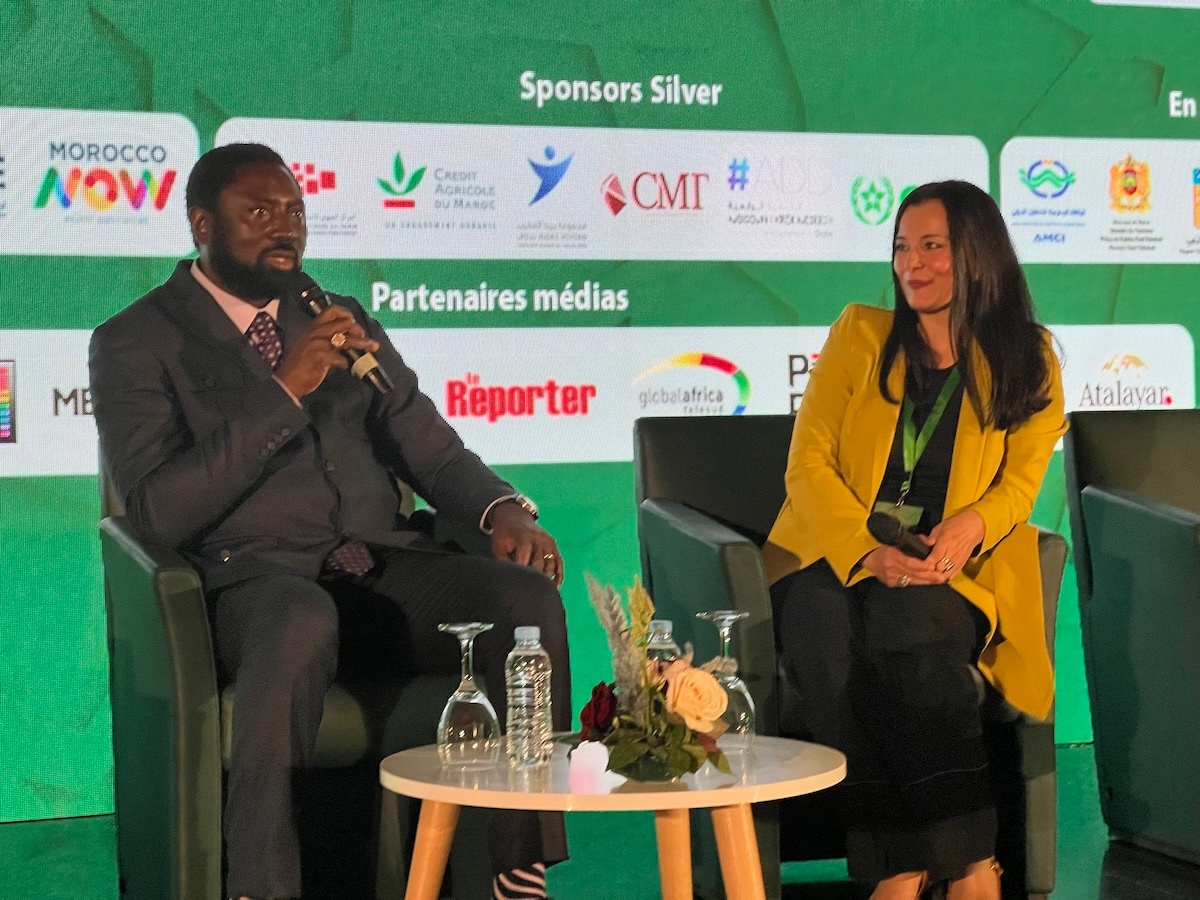
Also speaking during the first day were Gambian Foreign Minister Mamadou Tangara, interviewed by Med1 TV journalist Nadia Paquererau.
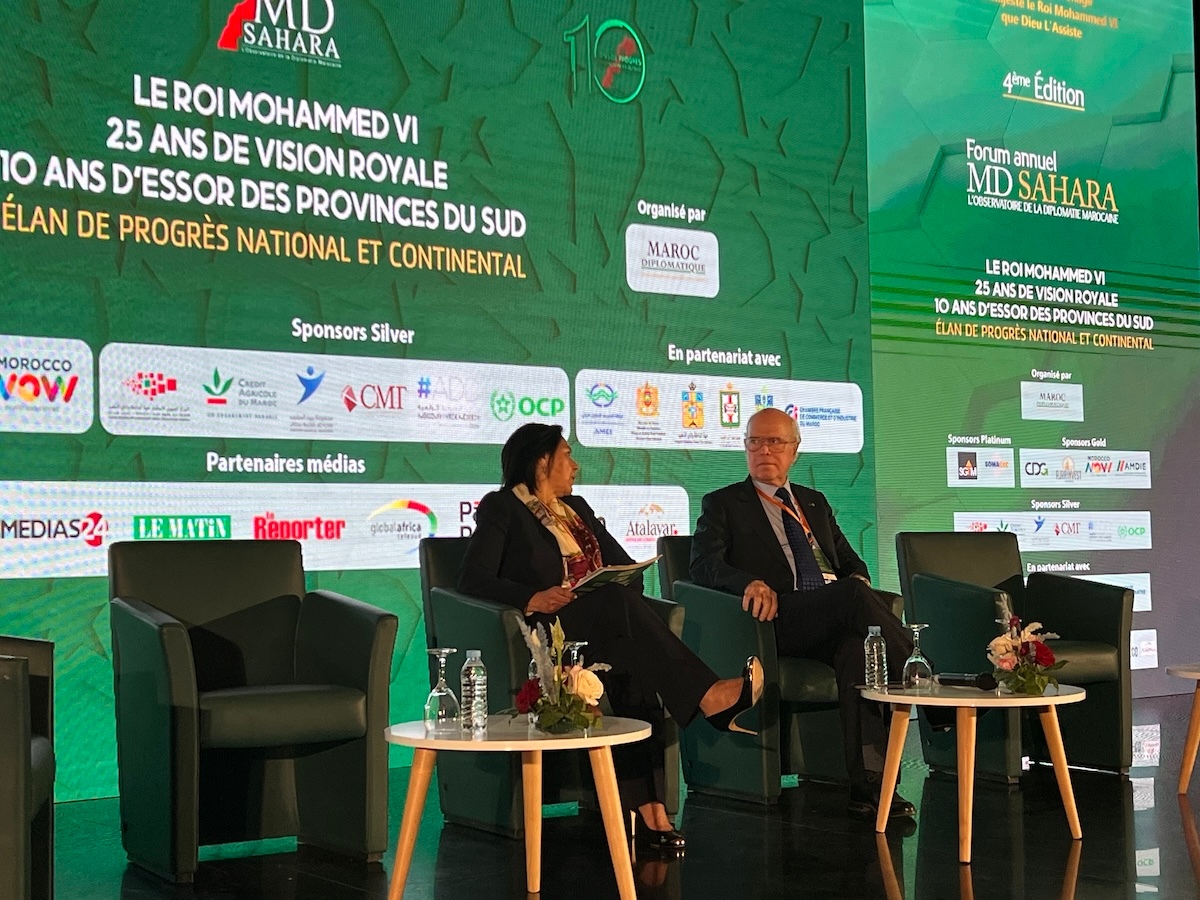
Humanitarian development expert Nadira El Guermai, journalist Seddik Maâninou with his interesting secrets of the Green March.
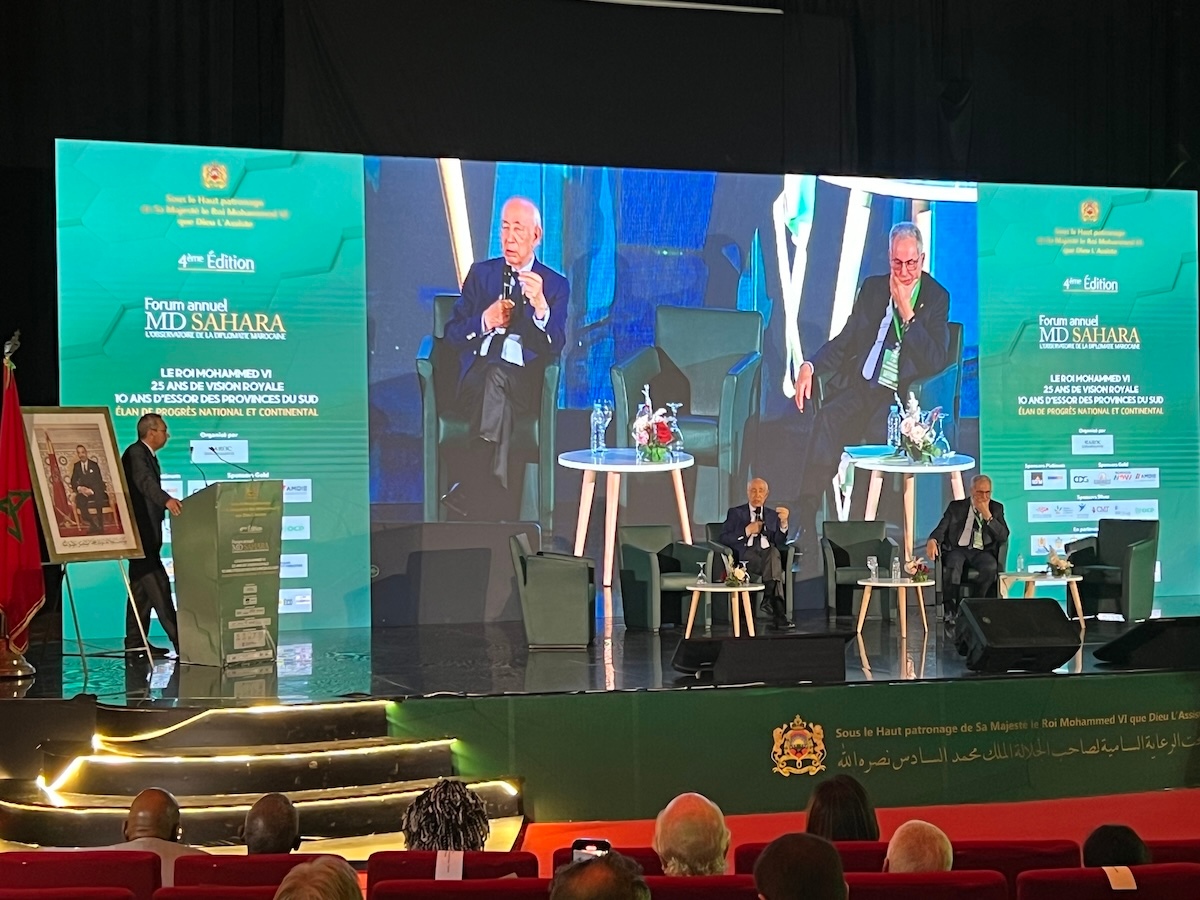
Former Prime Minister Driss Jettou and former Minister Mohand Laenser closed the session with their calm vision.








